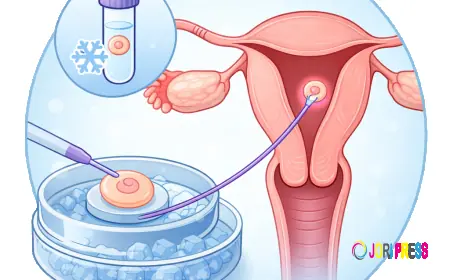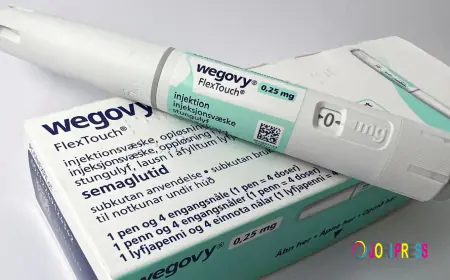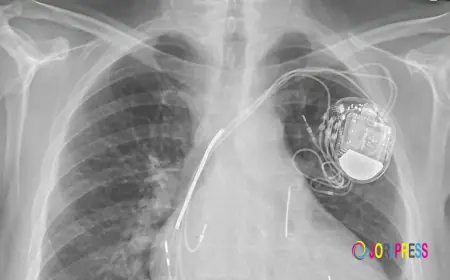How should I prepare for a hair transplant?
Restore your confidence with a natural-looking Hair Transplant in Islamabad. Discover advanced techniques, expert care, and lasting results at SKN Cosmetic Clinic.

A hair transplant can be a life-changing experience, offering a long-term solution for hair loss and restoring not just your hair but also your confidence. If you're planning to undergo a Hair Transplant in Islamabad, proper preparation is essential to ensure a smooth procedure and optimal results. Clinics like SKN Cosmetic Clinic provide comprehensive guidance to help you prepare physically and mentally for the big day, but there’s a lot you can do on your own, too.
In this blog, we’ll walk you through all the important steps and precautions to take before your hair transplant so you feel confident and well-prepared.
1. Start With a Detailed Consultation
Your preparation begins with a consultation session with a qualified hair transplant surgeon. During this appointment, your scalp will be examined, your medical history reviewed, and your expectations discussed.
Make sure to:
-
Share any underlying health conditions
-
List all medications or supplements you’re taking
-
Ask about the most suitable technique (FUE, FUT, or DHI)
-
Understand the number of grafts required and the expected results
This consultation sets the foundation for your treatment plan and is a crucial part of your preparation journey.
2. Adjust Your Medications
Certain medications can interfere with surgery or healing. Your doctor may advise you to stop taking blood-thinning medications such as:
-
Aspirin
-
Ibuprofen
-
Anti-inflammatory drugs
-
Some herbal supplements (e.g., ginseng, ginkgo, vitamin E)
You’ll likely be asked to pause these medications 7–10 days before surgery to reduce the risk of excessive bleeding. Always consult your doctor before discontinuing any medication.
3. Avoid Smoking and Alcohol
Both smoking and alcohol can negatively impact the healing process. Nicotine restricts blood flow to the scalp, which can reduce graft survival, while alcohol can thin your blood and increase bleeding during the procedure.
Recommended:
-
Stop smoking at least 2 weeks prior to surgery
-
Avoid alcohol for at least 3 days before the procedure
These steps can significantly improve the outcome and speed up your recovery.
4. Take Care of Your Scalp
Healthy skin leads to better results. In the days leading up to your hair transplant:
-
Keep your scalp clean and moisturized
-
Avoid using harsh chemicals or styling products
-
Treat any dandruff or scalp infections beforehand
Your doctor may even prescribe a medicated shampoo or suggest specific scalp treatments to get your skin in top condition.
5. Don’t Cut Your Hair Short
Although it might seem logical to trim your hair before a transplant, don’t do it unless your surgeon instructs you to. Most clinics prefer to handle any necessary trimming themselves. Having longer hair can:
-
Help the surgeon determine your natural hair pattern
-
Aid in concealing donor areas post-surgery
Let your medical team handle the styling on surgery day.
6. Focus on Nutrition
Eating well before surgery supports your body’s healing abilities. Focus on a nutrient-rich diet in the week leading up to your transplant.
Eat more of:
-
Protein (chicken, fish, eggs, legumes)
-
Iron-rich foods (spinach, lentils, red meat)
-
Vitamin C (oranges, strawberries, bell peppers)
-
Omega-3 fatty acids (nuts, seeds, salmon)
Also, drink plenty of water and avoid caffeine on the day of surgery.
7. Manage Stress and Rest Well
Stress can impact your immune system and even affect your healing process. Try to stay relaxed and get at least 7–8 hours of sleep the night before your surgery.
Consider practicing:
-
Meditation or breathing exercises
-
Light stretching or yoga
-
A relaxing walk to calm your nerves
Being mentally and physically relaxed can help you have a more pleasant experience on the surgery day.
8. Choose the Right Clothes
On the day of your transplant, wear comfortable, loose-fitting clothing — preferably a button-down or zip-up shirt. Avoid anything that you have to pull over your head, as it might disturb the grafts post-surgery.
Also, avoid wearing accessories like:
-
Hats or caps
-
Hair gels or sprays
-
Tight collars
Your outfit should be easy to remove after the procedure without touching your scalp.
9. Plan for Post-Surgery Logistics
While the hair transplant itself is often done on an outpatient basis, you should make arrangements for:
-
A friend or family member to drive you home
-
Taking 2–5 days off work to rest and heal
-
Stocking up on post-operative supplies (medications, special shampoo, etc.)
Also, prepare your home environment with clean sheets, extra pillows, and a quiet area to relax during recovery.
Arrive Early and Empty Stomach (if advised)
Depending on your clinic’s protocol and whether local anesthesia or sedation is being used, your doctor may advise you to:
-
Arrive at the clinic 30–60 minutes early
-
Avoid eating or drinking for a few hours before surgery (only if sedation is involved)
Always follow your clinic’s specific pre-op instructions carefully.
Quick Hair Transplant Prep Checklist
Here’s a handy recap of how to prepare:
Book and attend a consultation
Stop blood thinners and certain medications
Avoid smoking and alcohol
Keep your scalp healthy and clean
Don’t cut your hair
Eat nutritious meals and hydrate
Get enough rest
Wear button-down clothes on surgery day
Arrange transportation and time off
Follow any fasting instructions if required
Final Thoughts
Proper preparation plays a major role in the success and safety of your hair transplant. From scalp care and medication adjustments to mental readiness and lifestyle tweaks, every step brings you closer to the final, satisfying result you desire.
If you're planning a Hair Transplant in Islamabad, working with an experienced and reputable clinic ensures you're guided at every step. SKN Cosmetic Clinic is known for its personalized approach, advanced surgical techniques, and expert aftercare. Their specialists will provide you with clear, detailed preparation instructions tailored specifically to your needs, making the entire process smoother, safer, and more effective.
What's Your Reaction?
 Like
0
Like
0
 Dislike
0
Dislike
0
 Love
0
Love
0
 Funny
0
Funny
0
 Angry
0
Angry
0
 Sad
0
Sad
0
 Wow
0
Wow
0
















































